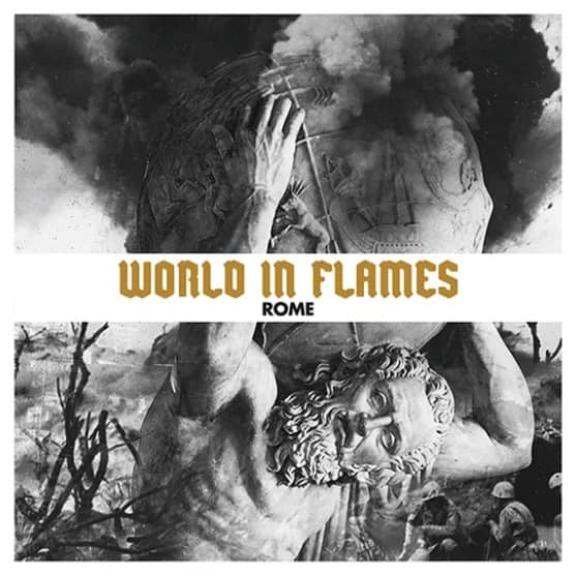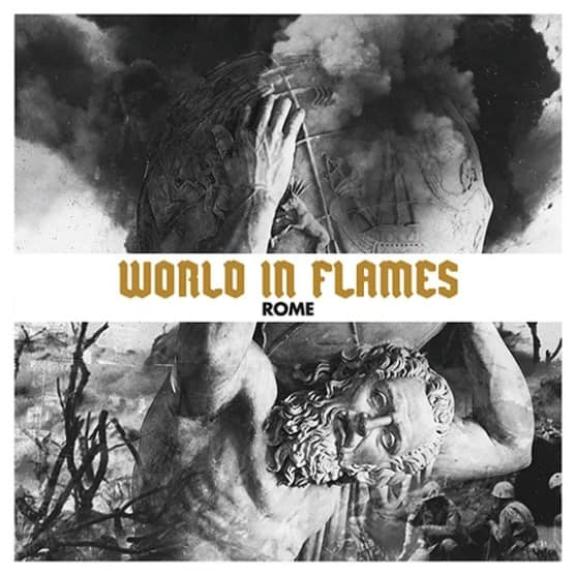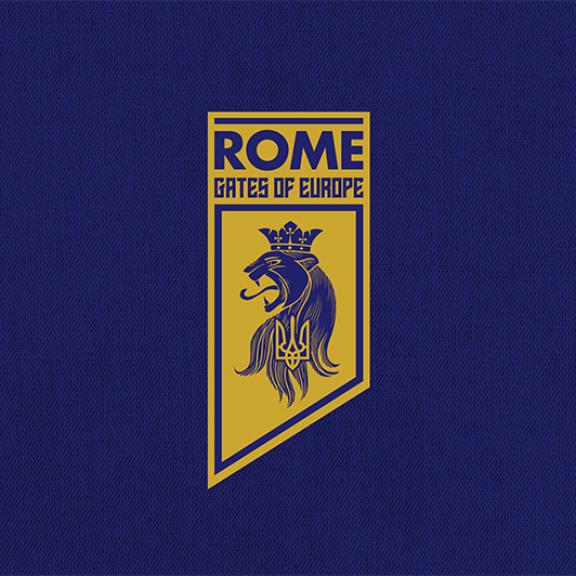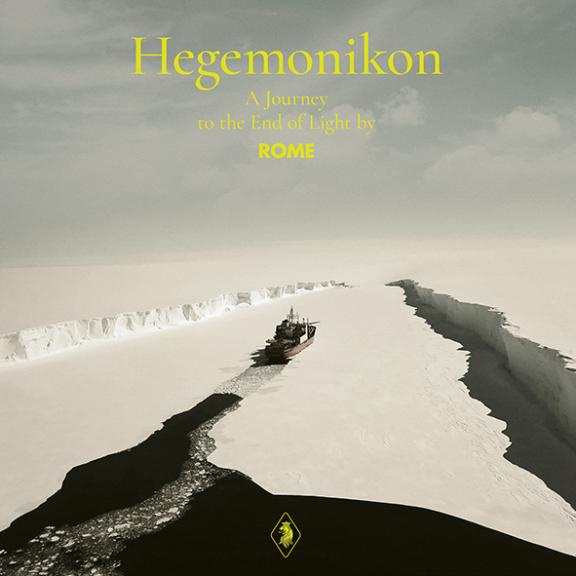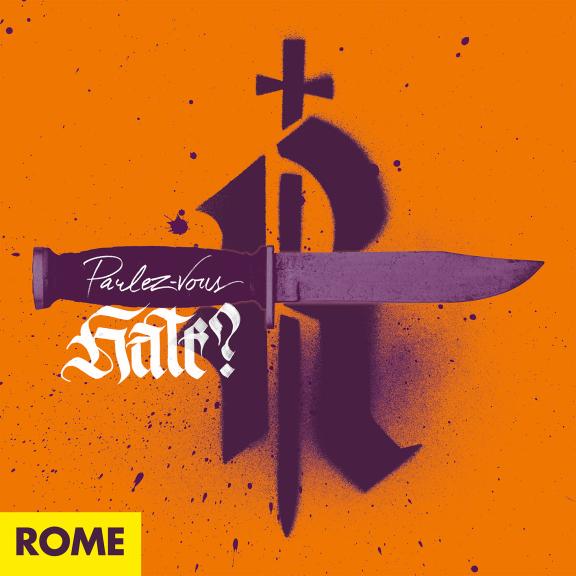Rome is changing its habits: after two decades of singing about Europe, evoking the past horrors of war at the rate of one album a year, the neofolk/industrial project of Luxembourg-born Jérôme Reuter has been caught up, like the rest of us, by its nightmares. After last year's Gates of Europe, entirely devoted to Russia's invasion of Ukraine, the artist disappeared from our radars for a few months, only to return with World in Flames, a big EP presented as a ‘merciless dissection of our world’.
Our annual dose of Rome may be half as long as usual, but it's no less intense. Despite his pace, Reuter has always managed to breathe their own identity into each of his album, evolving his project between neofolk, martial and minimalist industrial, chanson and even synthpop in recent years. Of course, some albums leave more of an impression than others, and as soon as you get past the introduction, you can tell that World in Flames is going to be one of them.
Seemingly continuing the more electronic orientation of recent years, Rome also returns to a disturbing coldness on First We Take Berlin and its intimidating martial rhythm full of sinister echoes. Reuter's voice, deep and gloomy, a bitter poet narrator, carries and denounces while hijacking the apocalyptic themes of Leonard Cohen's First We Take Manhattan in a setting evocative of the emergence of Nazi Germany. His compositional skills hit the mark again, and the chorus grabs you and won't let go. Electronic martial austerity again and again with Submission, on which Rome samples the melody of the Ukrainian song Білі Ночі (White Nights) and gives it a theatrical intensity with a funereal atmosphere. As with his best tracks, Reuter manages this great leap between dark, cold, even severe tracks, and an accessibility, a seductiveness that lodges itself in his vocals, in his choruses.
The EP is divided, like the world, as the official promotional description tells us. Its two parts are obvious here, the break coming halfway through with a return to acoustic guitar and folk. The melancholy of Eagle Wings and Todo Es Nada have less anthemic potential than the tracks that precede them, and return to the Rome we know best, less surprising but no less inspired, and still as elegant, refined but less icy.
After twenty years of singing about the wars of the past, Rome is now heard in the present. Reuter has gone from being a slightly prophetic narrator to an observer of the conflagration. World in Flames is his shortest annual offering but, by condensing it to its essentials, it is also one of his most powerful.

